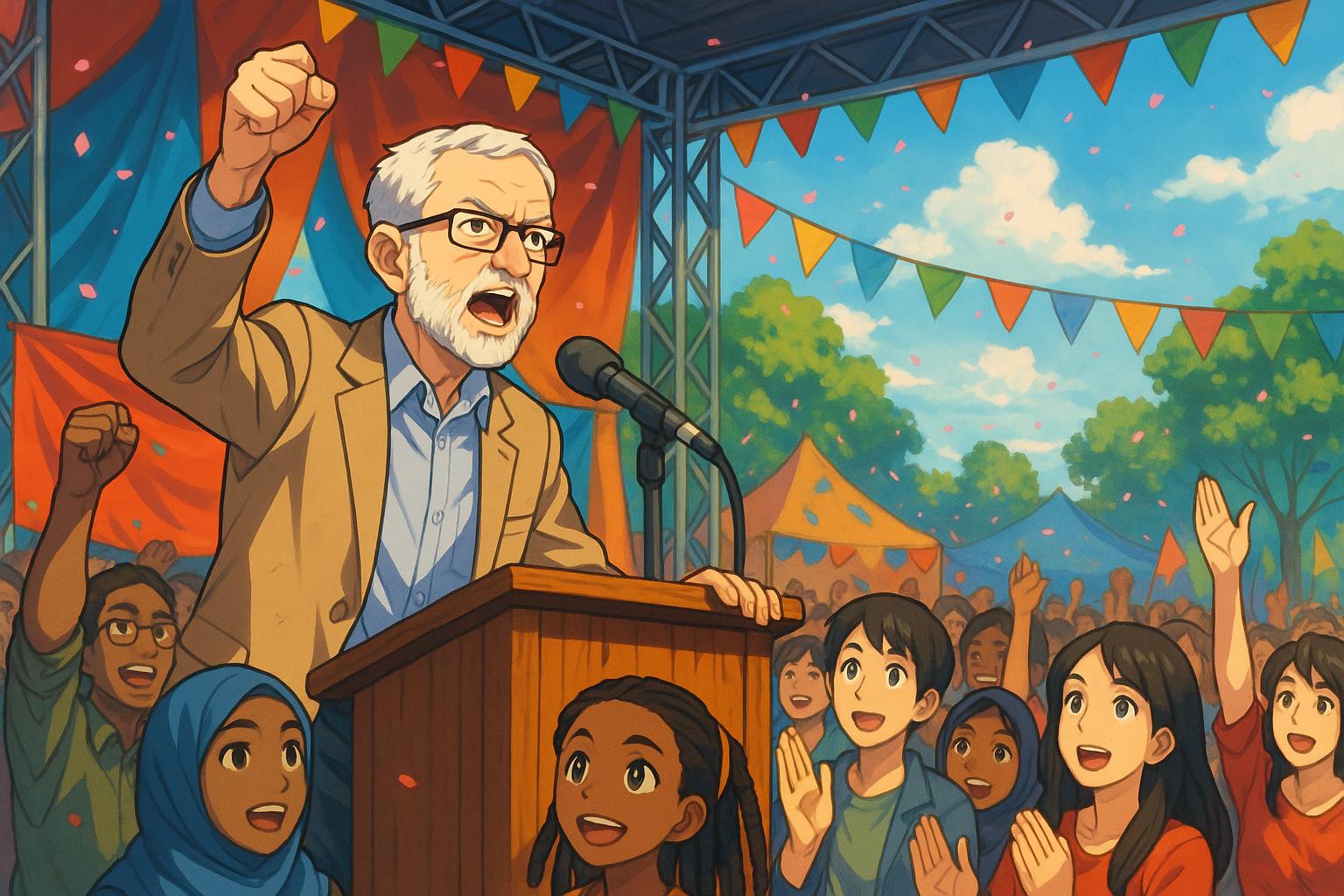Jeremy Corbyn has delivered a forthright critique of Sir Keir Starmer's recent remarks regarding immigration, particularly the phrase “island of strangers” used during a significant policy announcement. Speaking at the Wide Awake Festival in Brockwell Park, south London, Corbyn, the former Labour leader and now an independent MP, urged a reconsideration of the narrative surrounding immigration. He stated, “Let’s hear no more of this nonsense spoken by some about this being a country of strangers,” reflecting on the alarming historical echoes of Enoch Powell’s controversial rhetoric from the 1960s. Corbyn framed the nation’s diversity as a source of strength, joy, and hope, reinforcing his belief in community cohesion.
Starmer's comments come amid the broader context of his government’s stringent reforms on immigration, which have elicited significant backlash from various sectors, including businesses and educational institutions. His proposals extend the settlement period for migrants and eliminate visa options for lower-skilled roles, a move that critics argue will exacerbate existing labour shortages in essential services, particularly healthcare and social care. According to reports, these reforms could reduce net migration significantly, yet many economists contend that high migration levels have actually bolstered economic growth, challenging Starmer’s assertions.
Corbyn’s critique extends beyond immigration policy to address broader socio-economic disparities. He called for the government to rethink its stance on taxation for the wealthy, arguing that genuine equality and justice require systemic change rather than continued support for billionaire interests. He remarked, “You can’t achieve equality and justice if you extol the virtues of billionaires and do nothing about taking money off them to pay for the decent services for the many.” This sentiment reflects a growing frustration within parts of the Labour Party regarding their current leadership’s direction, particularly its perceived shift towards right-leaning rhetoric.
Additionally, Corbyn's stance on military support for Israel has been uncompromising. He has voiced strong opposition to the UK’s arms sales to Israel, particularly in light of the ongoing crisis in Gaza, linking military supply to moral obligations under international law. This issue resonates not only with activists but also with a significant faction of the British public, many of whom support a more critical approach to the UK’s foreign policy in relation to the Israel-Palestine conflict.
At the same festival, disparate voices emerged, including performances from artists like the Irish rap trio Kneecap, further highlighting the multifaceted nature of contemporary political discourse among youth and activists. However, local residents have also expressed dissatisfaction over the disruption caused by such events, successfully challenging Lambeth Council in court over planning procedures. This illustrates the ongoing tension between community engagement and governance, exacerbated by the intense scrutiny and critique of public resources and spaces.
In this complex political landscape, Corbyn’s calls for solidarity and actionable change resonate with a significant, albeit fragmented, constituency within the UK. As migration and integration policies continue to dominate political debate, the need for a coherent and inclusive narrative becomes ever more pressing within British society.
Reference Map:
- Paragraph 1 – [1], [4]
- Paragraph 2 – [1], [2], [6]
- Paragraph 3 – [3], [5]
- Paragraph 4 – [4], [5], [7]
- Paragraph 5 – [1], [2], [3]
Source: Noah Wire Services
